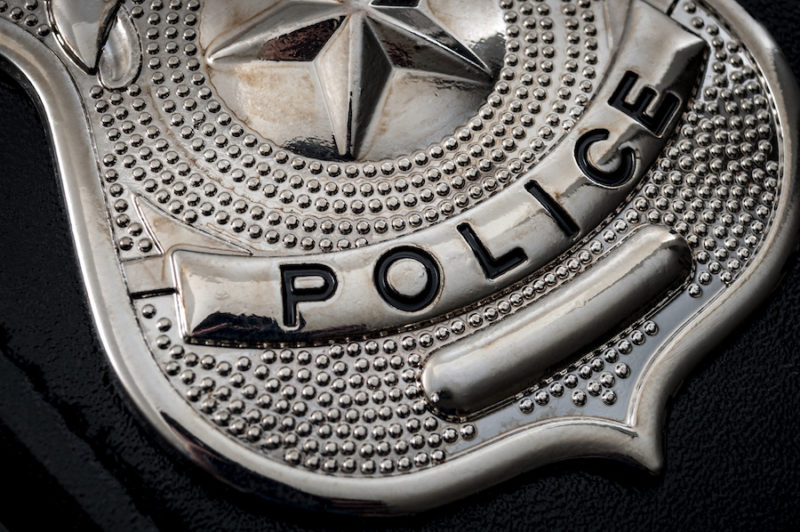There was an underlying message in the report by Police Chief Brian James to the City Council on violent crime at the work session on Monday, Dec. 7.
The report from James was straightforward. He didn’t make the connection, and the City Council didn’t ask any questions about how its own actions had affected the police.
But the facts are there.
In the report, James noted that the Greensboro Police Department (GDP) is shorthanded. Of the 674 sworn officers that are budgeted, the GPD has 612 fully trained officers out on the streets.
James also noted that the GPD is doing well with special programs, including those that have come from the City Council.
These are listed under “Community Initiatives” and both the Homeless Assistance Response Team and the Behavioral Health Response Team were, according to the report, created through reorganization.
In other words, the Police Department received no additional funding or personnel for these new teams and that means that officers were taken from other duties to staff these teams.
The Homeless Assistance Response Team has two officers assigned to it, and the Behavioral Health Response Team has five. Plus there is a sergeant and corporal to supervise the seven officers on the two teams – for a total of nine police officers that were removed from other duties to staff these two new teams.
These two teams are not police initiatives, but City Council initiatives. The Homeless Assistance Response Team is mainly the work of At-large City Councilmember Michelle Kennedy, who is the executive director of the Interactive Resource Center (IRC), a daytime homeless shelter. The IRC is open to provide services for the homeless population from 8 a.m. to 3 p.m., Monday through Friday.
According to the IRC, there are over 900 homeless people in Greensboro. Now the Greensboro Police Department has assigned two officers full time, plus a corporal and a sergeant to supervise them, to deal with the homeless population.
The current mental health team, which is staffed with outside consultants, answered 489 calls (accompanied by a police officer) that Metro 911 determined were mental health related from March through November this year. The plan is that on Jan. 1, these calls will go to this new special team – made up of five officers, plus seven mental health counselors who will be city employees reporting to the office of Equity and Inclusion, not the Police Department.
In 2020, the mental health counselors answered about 60 calls a month. In 2021, a team of five police officers and seven mental health counselors will be responding to those calls.
Greensboro had had 57 homicides in 2020 when the City Council met for it violent crime work session on Dec. 7. The city has now had 59 murders this year, and with over two weeks left the number is almost certainly going over 60. But even if there is not a single murder in the next two weeks Greensboro has already set an all time record for homicides.
In the midst of a violent crime crisis the City Council has ordered the Police Department to take on more responsibilities but has offered no additional support in funding or personnel.


It is heartbreaking to see how our Police Officer’s are being treated. I would like them to know how much I appreciate them for putting their lives on the line for Greensboro everyday and the citizens that live here. God bless each and everyone of you!!
Can’t you just see it now “ we ,city council “ have cut the police budget board 25% and will farm the work over to Social Services. There was not a need for all that headcount that was on the Police force.This is so typical of all the Democrats that run most cities.,they run it in the ground.When the crime starts increasing they often forget that they created the problem with all the price reductions in the budget.That includes the police force at the top of the list.Why do all cities seem to be run by the Democrats!!!! Spend your money first.
Hum…didn’t SOMEBODIES something just get almost 400,000 dollars to help out this situation?? Where is the accountability for all this money going out WITH NO RESULTS????
Our Mayor and government officials are doing great harm to Greensboro citizens by Not supporting our police!! What is wrong with these people? Mayor Vaughn you can do better than this!!
John will endorse all 9 and Republican Marty will fund them Brian James is a joke. Greensboro will keep being sick.
Eventually, as staff and budgets continue to be cut, fewer and fewer are asked to do more and more until it only takes one to do the impossible. This is the view of the Greensboro City Council unless it has to do with some of their “pet projects”. When you elect Democrats to run the government, history shows how little is actually accomplished, but their rhetoric is immense. Hang on, we are just beginning to experience the complete demise of law and order, the destruction of our constitution and the implementation of anarchy.
Get rid of you one Johnson $500,000 program and give the money to the real police !
Well then, by all means, our boys in blue should spend as much time as they can citing and fining people for not wearing @#$&!? masks!!!
THE CITY Council needs to do there job and STOP PUTTING IT ON THE POLICE DEPT. The Police are here to serve the people not to serve the city council members . We the people pay tax’s and that means we are your boss not the other way around and you need to get that in your head first and for most. We the people know you think we are dumb but we are not we are to show you how sick of you we are on election day.